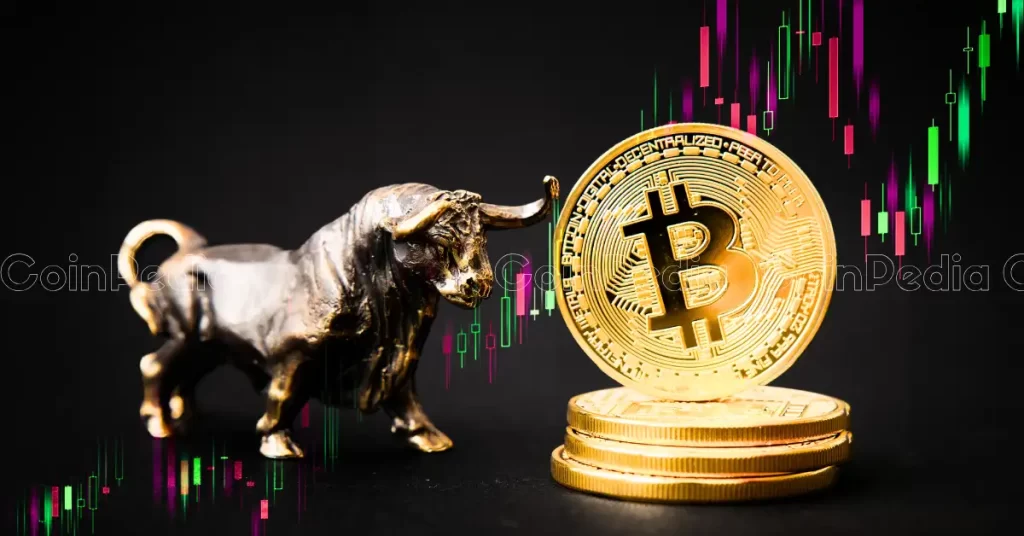Bitcoin Volatility Expected to Surge After SEC Approves Options on Spot Bitcoin ETFs: Reveals Analyst

The post Bitcoin Volatility Expected to Surge After SEC Approves Options on Spot Bitcoin ETFs: Reveals Analyst appeared first on Coinpedia Fintech News
The U.S. Securities and Exchange Commission (SEC) has approved the listing and trading of options on spot Bitcoin exchange-traded funds (ETFs), like BlackRock’s iShares Bitcoin Trust (IBIT). Analysts say this move is likely to make Bitcoin’s price more volatile. With options available on these ETFs, investors can bet on Bitcoin’s future price changes more easily. This could lead to bigger swings in its value.
Retail Traders Boost Volatility; Institutions May Stabilize LaterAnalysts predict that introducing options on spot Bitcoin ETFs like BlackRock’s iShares Bitcoin Trust (IBIT) will lead to increased volatility in the underlying asset.
On Friday, the U.S. Securities and Exchange Commission (SEC) approved NYSE American LLC and Cboe Exchange, Inc. to list and trade options on multiple spot Bitcoin exchange-traded funds.
Ed Tolson, CEO of Kbit said that U.S. retail traders who currently lack access to perpetual swap markets might now turn to IBIT options to achieve an asymmetric payout structure, thereby filling a market gap for these investors.
Tolson indicated that retail speculation will likely be the primary use case for IBIT options. He explained that institutional market makers, who are expected to take the opposite side of these trades, will likely be short gamma. This means they may need to buy as the price rises and sell as it falls, potentially amplifying volatility.
Michael Harvey, Head of Franchise Trading at Galaxy Digital, also anticipates increased volatility in the short term. He noted that they expect retail traders to outnumber institutions initially, which could elevate volatility. Over time, as institutions adopt yield-generation strategies, such as selling volatility, this could dampen the overall volatility observed today.
Michael emphasized that the regulated nature of U.S.-based spot Bitcoin ETF options is likely to attract institutional investors who are curious about cryptocurrencies but have yet to enter the market. He noted that this development provides institutions with a new way to gain exposure to Bitcoin, which could lead to a deeper global market for Bitcoin options.
.article-inside-link { margin-left: 0 !important; border: 1px solid #0052CC4D; border-left: 0; border-right: 0; padding: 10px 0; text-align: left; } .entry ul.article-inside-link li { font-size: 14px; line-height: 21px; font-weight: 600; list-style-type: none; margin-bottom: 0; display: inline-block; } .entry ul.article-inside-link li:last-child { display: none; }- Also Read :
- BlackRock’s Bitcoin Game, Strategy or Speculation?
- ,
The SEC’s approval includes strict position and exercise limits, capping positions at 25,000 contracts. This conservative cap, significantly lower than the 250,000-contract limits seen with other ETFs, is designed to reduce the risk of market manipulation and ensure a more controlled trading environment.
Analysts are closely monitoring how the expansion of options trading on spot Bitcoin ETFs will affect Bitcoin’s overall synthetic notional value and its role in the global financial system. Michael explained that in other commodities markets, options’ notional values often surpass the physical supply, which can lead to erratic price behavior. However, he does not expect long-term price distortion in Bitcoin.
As Bitcoin continues its Uptober trend, there’s a record surge in ETF volume. Last week, Bitcoin ETFs saw net inflows of $2 billion—the third-largest in history—with BlackRock’s IBIT ETF leading at $1 billion and Fidelity’s FBTC ETF following with $319 million. Ethereum also gained, with its spot ETF attracting $79 million, according to data from SoSo Value.
